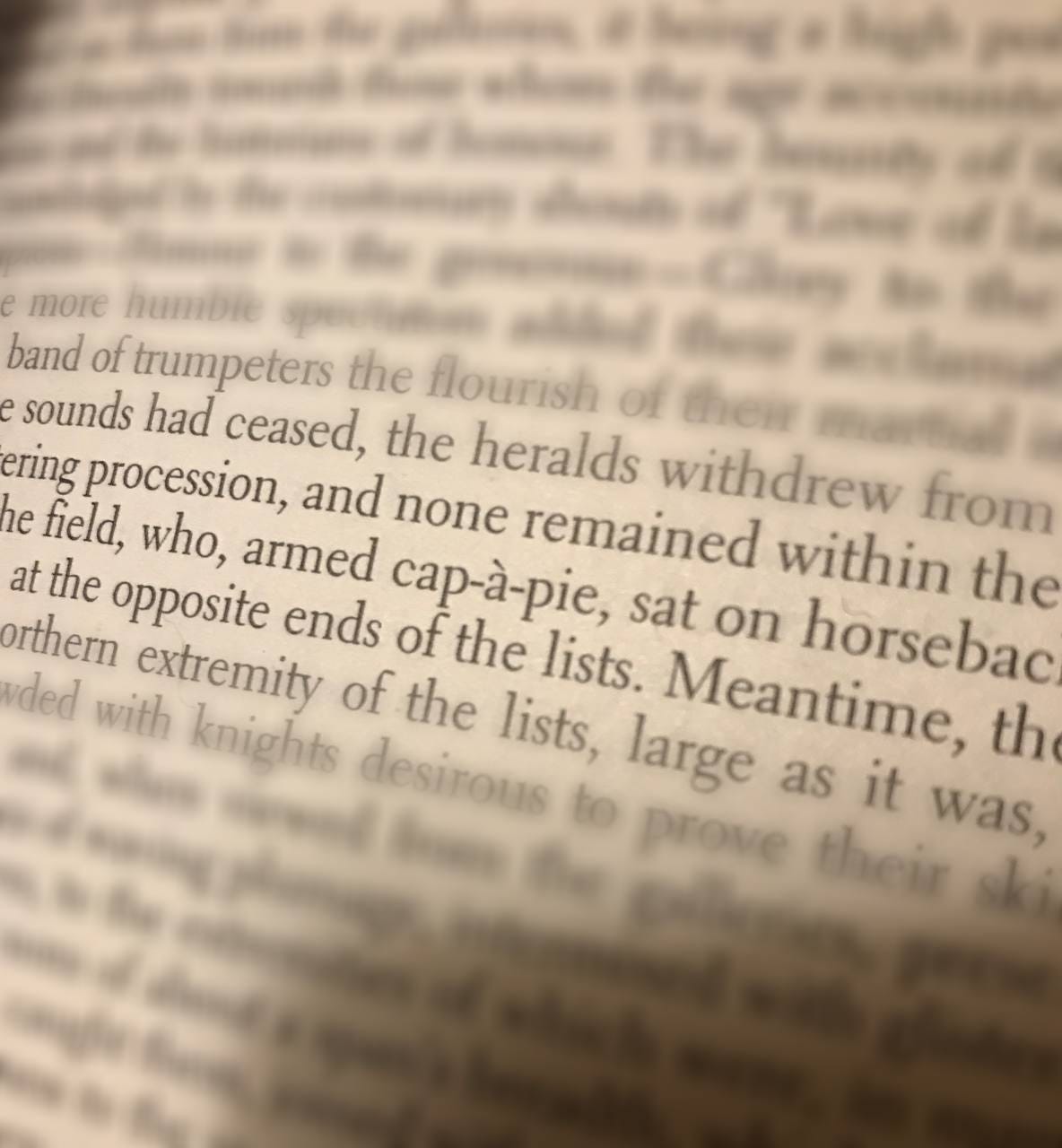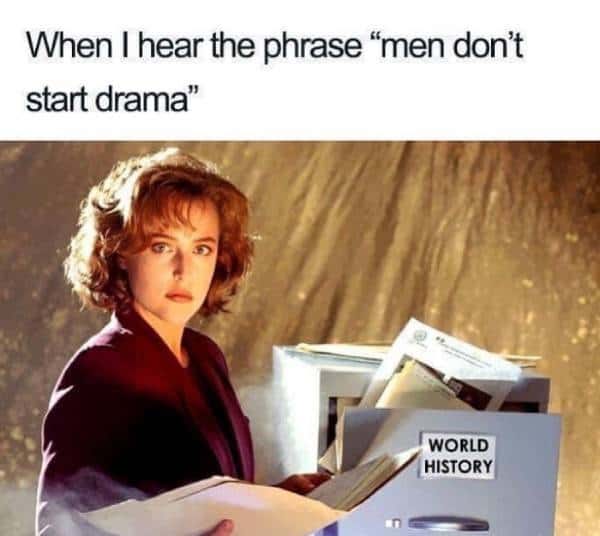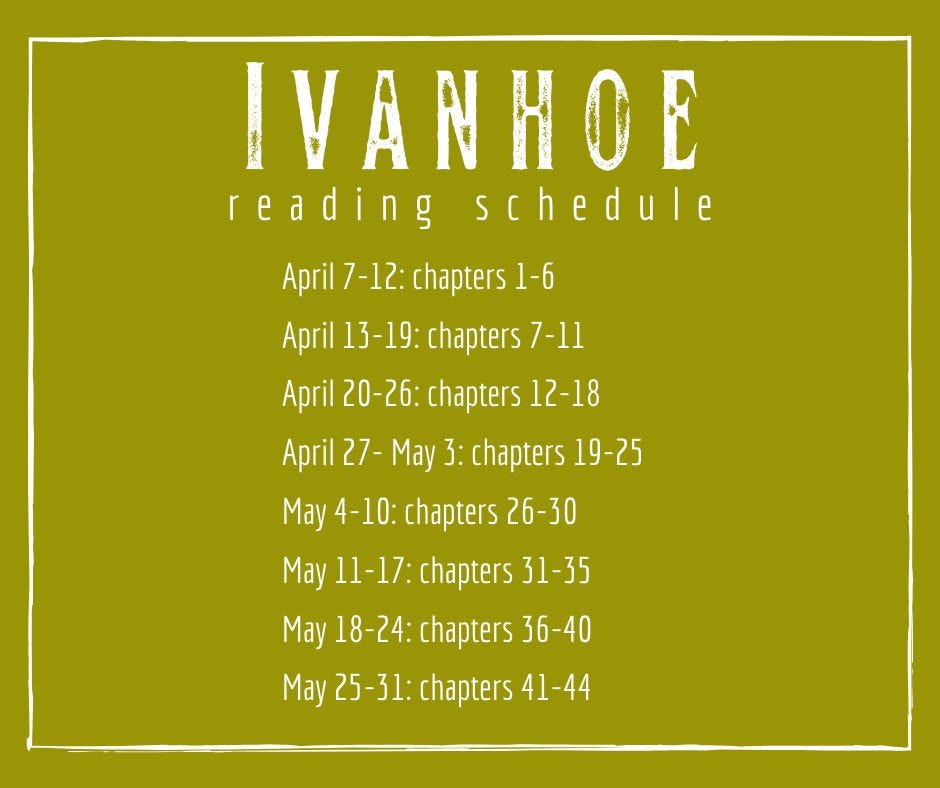Okay, so we’ve noticed a little…whiplash…in the transition from Gone With the Wind to Ivanhoe.
Participants bailed out left and right; a large contingent opted to settle for one of the movie adaptations; rebellious factions along the sidelines are waving trashy romances from the 80s and flinging them into the lists.
(I kid, I kid…I made the last one up.)
No shame. It is harder. Shorter than GWTW, but the history, language, and terms are so unfamiliar to most of us, some of the paragraphs fly right over without any of the words sticking the landing. This one is definitely a challenge.
So here, a little help: Here’s a list of jousting vocabulary, which comes in very handy around chapter 7. (HT MustangSammy for the link!)
Also helpful around chapter 7 is a brief understanding of King Richard and Prince John’s dysfunctional royal (but I repeat myself) family dynamics.
The beginning of chapter 7 had me reading several different articles to try to understand the Plantagenets and their line of succession. None of this is familiar to me, but here’s what I’ve got:
King John and Prince Henry are brothers, two of the eight children that came from the union of Henry II and Eleanor of Aquitaine. Five boys, three girls…plus two illegitimate sons.
The first son, William IX, dies as a toddler.
The second son, Henry the Young, co-reins with Henry II a bit before rebelling alongside his mother and brothers Richard and Geoffrey, and dies at age 28.
So by the time we get to our story, this is why Richard, who is the third in line of succession behind two other brothers, is actually king. As far as I can tell, at least. 😵💫
Also very helpful this time around has been Jeff’s enthusiasm about the book. Jeff, you may be single-handedly responsible for keeping at least a few readers from jumping ship in this round. Bravo!
Here’s a bit of his great perspective on Ivanhoe:
If you examine this book from an ecclesiastical viewpoint, it is the story of the redemption that Christ offers …
The hidden King
The servant Knight
The discredited Pharisaical Normans
The stubborn Saxons
The unlikely apostles…
And weakness of the leadership, both Jewish and catholic
The reverent women…
It’s really a quite extraordinary story…if you read between the lines.
And here’s our schedule if you lost track of it:
If you are biding your time until we finish this book — or you’re just anxious to see what the next round will be— I’ll post the next poll in early May, and announce the winners by mid-May. The next book will start June 1.
books I loved this month
Looking for something else to read? Here are four books that I finished (and loved) over the last month or so:
The House of Seven Gables by Nathaniel Hawthorne: This is not a fast-paced book. Also, it’s not spooky, creepy, ghostly, or anything else like what some of the more sensational reviews say. It was published in 1851 and reads like it — long sentences, but generally not too complex; profound observations on life, human nature, and symbolism.
Individuals, whose affairs have reached an utterly desperate crisis, almost invariably keep themselves alive with hopes, so much the more airily magnificent, as they have the less of solid matter within their grasp…
— Nathaniel Hawthorne, The House of Seven Gables
Sometimes the Magic Works by Terry Brooks: If you’ve read the Shannara series (I haven’t) you’ll recognize this author (I didn’t), but even without that connection, it’s a fun, light, fascinating look into a writer’s life. I’ve read a lot of books on writing, and loved that this one doesn’t repeat all the same basics, but instead delves into specific topics that not all books on writing do: What is it like to write a book based on a movie screenplay? What might an outlining process look like? What can you learn from a 5-year-old about storytelling?
Made in China by Amelia Pang: This is one of a very few books that I think everyone — especially Christians — should read and be aware of.
After working eight hours a day in the quarry, prisoners had to manufacture artificial flowers for six more hours at night. Chen folded adhesive labels to garish lilies, tulips, and poppies. He glued fake stems to polyester and silk flowers. The mustiness of the silk mingled with the strong glue, covering the iron scent of blood.
— Amelia Pang, Made in China
Do you know how all the cheap made-in-China goods are made? Do you know why they’re so “affordable?” It’s because the labor isn’t paid for. Or it is, but only by the slaves — many of whom are Christians and other religious minorities — and the price they pay is sometimes their lives.
By 2001…the practice of selling organs of executed prisoners of conscience had spread beyond Xinjiang; at this point, the Chinese government was also targeting Falun Gong followers, underground Christians, and Tibetans….
Although all healthy prisoners are at risk, there is evidence that suggests Falun Gong practitioners and other religious minorities are especially targeted for organ harvesting because they tend not to smoke or drink alcohol….it is no coincidence that China’s organ transplant industry started experiencing rapid growth in 2000, shortly after the crackdown of Falun Gong began…there were only 91 hospitals performing organ transplants in China that year; just six years later, there were one thousand….
China’s then-minister of health Huang Jiefu admitted in 2005, before the Falun Gong investigations began, that more than 95% of the nation’s transplant organs came from executed prisoners.
— Amelia Pang, Made In China
Dear Church, we need to stop buying this junk, stop giving it away in our services and classes, and stop saying we care about freedom when we continue to perpetuate slavery and profit from a “good deal.” This has been one of our soapboxes for 20 years, and I’m so glad there’s a new book that exposes it.
If you’re interested in a fiction story that explains this from a Christian perspective appropriate for middle-to-high-schoolers, Safely Home by Randy Alcorn is excellent.
The Awe of God by John Bevere: This is a revival-inducing book. If the Church understood what the fear of God really is, it would change everything. I hope we let it. Vin wrote a 5-star review of it here if you’re curious.
I also have a couple books that I either finished or quit in disgust in the last week; I won’t tell you about those. 😅
But hey, what have you finished lately that you recommend? Tell us all about it in the comments, or join us in our Telegram group, where we’ve been discussing things like kitchen book storage, ideas for storing kids books, other books, and book decor in general, plus current (other) reads, The Wind in the Willows (which was a Gaining Ground book in 2022), movie versions of Ivanhoe…and I don’t know what else. It’s busy. You should come and join us. 😁
Happy reading,
Shannon













